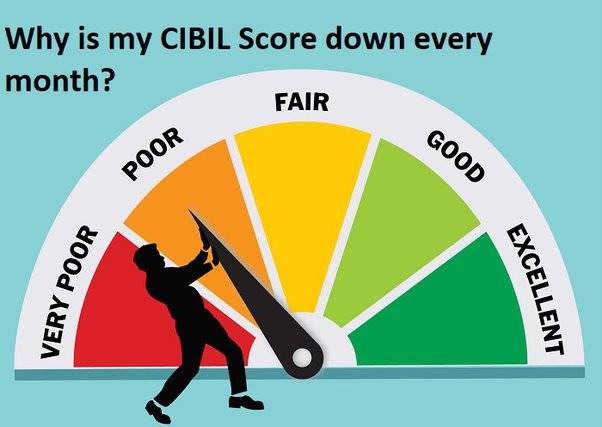Financial challenges can lead to difficulty in repaying loans, prompting many borrowers to consider personal loan settlement as a solution. While settling a loan may provide immediate relief, it is essential to understand its impact on your credit score and financial future. This blog will explore the intricacies of personal loan settlement, its effect on credit scores, and ways to mitigate these consequences.
What Is Personal Loan Settlement?
Personal loan settlement is an arrangement between a borrower and a lender to close the loan account by paying a mutually agreed-upon amount, which is less than the total outstanding debt. Lenders usually offer this option to recover at least a portion of the dues when a borrower is unable to make regular payments due to financial distress.
Although settlement helps borrowers avoid further legal action or collection efforts, it is not a full repayment of the loan. As a result, it has repercussions on the borrower’s creditworthiness.
Understanding Credit Scores
Before delving into the effects of loan settlement, it is important to understand what a credit score is. A credit score is a numerical representation of your creditworthiness, ranging between 300 and 900 in India, with a score above 750 considered excellent. It is calculated based on factors such as:
Repayment History: Timely payments positively impact your score.
Credit Utilization: The ratio of credit used to the total credit limit.
Credit Mix: A balance of secured and unsecured loans.
Credit Inquiries: Frequent loan applications can lower your score.
Outstanding Debt: High unpaid balances negatively affect your score.
How Does Personal Loan Settlement Work?
Loan settlement is typically initiated when a borrower communicates financial hardships to their lender. The process includes:
Negotiation: Borrowers and lenders agree on a lump-sum amount to close the loan.
Payment: The borrower pays the agreed amount in one transaction.
Account Closure: The lender marks the loan as “settled” rather than “closed.”
While the account may no longer require payments, the “settled” status has implications for the borrower’s credit report.
How Personal Loan Settlement Affects Credit Score
Loan settlement impacts your credit score in the following ways:
Negative Remark on Credit Report
After settlement, the lender reports the account as “settled” to credit bureaus like CIBIL or Experian.
This status indicates that the borrower did not fulfill the loan obligations in full, which reduces the credit score.
Credit Score Drop
The extent of the drop varies based on factors like your prior credit history and the outstanding amount.
On average, a settlement can lower your score by 75–100 points or more.
Reduced Creditworthiness
Future lenders may view you as a high-risk borrower.
It becomes harder to secure loans or credit cards, and even if approved, you may face higher interest rates or stricter terms.
Impact Duration
A “settled” status can remain on your credit report for up to seven years.
While the impact lessens over time with positive credit behavior, it takes years to rebuild a strong credit score.
Why Do Lenders Report Settlements to Credit Bureaus?
Lenders are obligated to report all account activities to credit bureaus, ensuring transparency in credit reporting. A “settled” remark helps future lenders assess potential risks associated with a borrower. This reporting protects financial institutions from lending to individuals who might default.
When Is Loan Settlement Justifiable?
Loan settlement should only be considered in situations where repayment is genuinely impossible, such as:
Loss of Income: Unexpected unemployment or business failure.
Medical Emergencies: High medical expenses reducing disposable income.
Natural Calamities: Disasters affecting your financial stability.
Debt Overburden: Multiple loans becoming unmanageable.
How to Mitigate the Impact of Loan Settlement on Credit Score
If you have settled a loan or plan to do so, follow these strategies to repair and improve your credit score:
Obtain a No Objection Certificate (NOC)
Ensure you receive an NOC from the lender after the settlement.
This document confirms the loan has been closed, avoiding future disputes.
Check Your Credit Report
Review your credit report post-settlement for accuracy.
Dispute any errors, such as incorrect outstanding balances or remarks, with the credit bureau.
Avoid Multiple Settlements
Settling multiple loans creates a pattern of financial instability.
Prioritize regular repayments for other loans to maintain credibility.
Limit Fresh Borrowings
Avoid applying for new loans or credit cards immediately after settlement.
Focus on improving your score before seeking additional credit.
Rebuild Credit with Positive Behavior
Pay existing loans or credit card bills on time.
Maintain low credit utilization and avoid unnecessary credit inquiries.
Secure a Secured Credit Card
Use a secured credit card against a fixed deposit to rebuild your score.
Timely payments on this card can gradually improve your creditworthiness.
Focus on Income Stability
Stabilize your financial situation to ensure consistent payments for any future obligations.
Alternatives to Loan Settlement
Before opting for settlement, explore these alternatives to avoid its negative impact:
Loan Restructuring
Request the lender to extend the loan tenure or reduce EMIs.
This makes repayments more manageable without affecting your credit score.
Balance Transfer
Transfer the loan to another lender offering a lower interest rate.
This reduces the EMI burden while maintaining your credit standing.
Moratorium or Deferment
Request a temporary pause on payments during financial hardship.
Though interest accrues during this period, it protects your credit score.
Debt Consolidation
Combine multiple loans into a single loan with a lower EMI.
This simplifies repayment and reduces the risk of default.
Legal Protections for Borrowers in India
Borrowers facing harassment during the loan settlement process are protected under Indian laws.
RBI Guidelines
Lenders must follow fair practices and avoid coercive recovery methods.
Consumer Protection Act
Borrowers can file complaints against unfair practices or harassment.
Debt Recovery Tribunal (DRT)
Borrowers can approach the DRT for resolution of disputes with lenders.
Conclusion
Personal loan settlement can be a relief in times of financial distress but comes with significant consequences for your credit score and future borrowing capacity. It is essential to weigh the pros and cons carefully and explore all alternatives before opting for settlement.
If settlement is unavoidable, take proactive steps to rebuild your credit score and maintain financial discipline. By understanding the impact and making informed decisions, you can recover from financial challenges and regain control over your credit health.
Get in touch with us today at www.Settleloan.in and embark on your path to financial freedom



